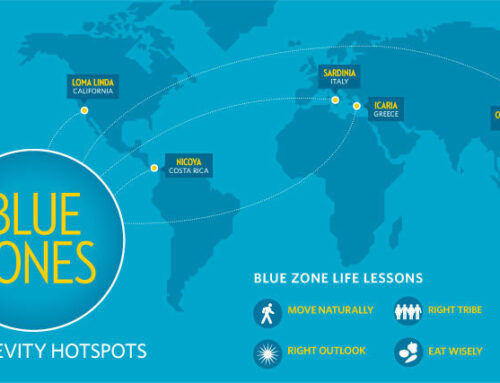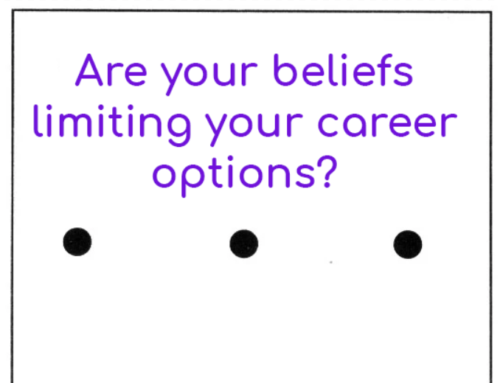I genuinely believe there are many careers out there that have the potential to make you feel engaged and happy. This should hopefully help take off the pressure having to find a needle in a haystack, which is not the case based on my experience as a career coach & counselor.
If you need a career change, but you don’t know what to do, this article will shed some light and hopefully give you the confidence that you can achieve it.
Even if you don’t have a passion for anything specific, don’t worry. Most people haven’t.
By reading this, my aim is that you’ll save time and unnecessary worry. I’ll explain how you should approach your new career discovery, including what practical actions you can take to make it all a reality.
You won’t find a new career by trying ‘to figure it out’ or by job searching online
I wish I had known this lesson when I went through my last major career change. I remember going round and round in circles in my head about what else I could feel excited about doing than the crystal business I was running, never getting any wiser.
Even after doing several online personality tests and reading a couple of books on career change, I still didn’t find any clarity.
In hindsight, I now know that if the solution was to be found in more thinking and analysis, I would have found the answer by now.
Another realisation that would have saved me time is to accept that I wasn’t going to find new and interesting career ideas from looking on Linkedin or contacting recruiters. It’s just more of the same roles, perhaps packaged slightly differently. Recruiters are not equipped to help you identify transferable skills, not to mention help you get clarity on new career directions by considering your interests, strengths and values. Whatever they were offering me just left me feeling cold.
In regards to most online job listings, you’re often competing with hundreds if not thousands of other candidates. Given that you’re looking for a change from what you’ve been doing so far, your CV and experience are likely not going to stand out amongst all the other candidates who have more relevant experience. After all, your excitement and eagerness to learn doesn’t shine through easily from your CV.
Look for people, not for jobs
There’s a time and place for recruiters and online job hunting, but when you’re starting out on a career change, your focus should be on connecting with people who are doing something that sounds interesting.
The power of connecting with other people is manyfold; you get a real feel for what their day to day role is like, including the good and the bad. You also get an impression of whether you would want to associate with people like them on a daily basis.
How did you feel after speaking with them – excited and curious or uneasy and a bit flat? Last but not least, meeting and talking to people in real life gives you the opportunity to shine and show the whole you, including your excitement and personality.
I love this saying:
“Opportunities do not float like clouds in the sky. They’re attached to people. If you’re looking for an opportunity, you’re really looking for a person.”
Connecting with people, or conducting ‘informational interviews’ as some people call it, is actually fun, and you get better at it the more you do it.
I’ve written an article on all you need to know on how to connect with people, so have a read through if you’re still feeling apprehensive. You’ll be surprised about how many people you likely already know, and how many people THEY know.
I don’t know of any better way to discover new areas and roles that you had no idea existed when you started out. Not to mention this way of discovery is a lot more engaging and fun than sending out one monotonous job application after the next.

Accept the journey – 2 steps forward and 1 back
In reality, the big, all-revealing ‘a-ha moments’ are rare. On your journey of discovery, it’s more likely you’ll experience a series of smaller insights that enable you to correct your course.
Finding a new career to get inspired by is more likely to happen in this organic, step by step way, because the reality is that there are so many career options out there which we have no clue about when we start.
It’s a bit like standing in a forest and having several paths in front of you. You probably feel paralysed, because you want to ensure you take the right track. The result is that you stand still – you’re stuck. The challenge however is that if you don’t take any of the paths, you’ll always stay stuck. It’s better to take ANY of the tracks, and as you move along it (=learn and grow), you can switch over to another path further down the line.
There will be dead ends, and they feel disappointing and like you’ve wasted your time. But you have to expect and embrace these dead ends, they’re part of the game.
As you move along the paths, you will start seeing your existing strengths and skills in a new light, and start having fresh ideas about what new careers they might be suited to.
This goes back to what I mentioned in the beginning, if you’re like most people, you can’t ‘think’ yourself to the solution, you need to act, in order to learn and gain insights.
So what could these paths look like?
When I went through my last career change which resulted in me becoming a coach, some of the first paths included having conversations with a few people in the field of organisational training, whom I had been introduced to by my partner. Then I started reaching out cold to some. At this stage, this field didn’t seem like the right fit. I also went to a couple of exhibitions on self-improvement, which felt more inspiring than these initial conversations. After a few weeks, I decided to enroll in an ‘introduction to coaching’ course, and this is how the ball started rolling.
Accountability and support network
Looking back at my last career transformation, I went through many highs and lows. It felt ecstatic when I hit upon a new idea to pursue, or when I had just had an inspiring conversation with someone, but I also remember feeling incredibly down if people weren’t responding to my messages, or if I had spent weeks researching a particular topic, and it turned out to fall flat.
What do I believe is the best way to avoid getting stuck and giving up?
You need to start building a support network. This means building ties with people who get you, perhaps because they’re in the same situation and you can both motivate and be accountable to each other. Read one of my previous articles with the top tips from people who have achieved a successful career change.
You can also get the help of a career coach or counsellor, who has experience making your journey quicker, less painless and more likely to be successful.
It’s common to have one or two family members or friends who are, if not opposed to, then sceptical about your journey. People have all kinds of reasons for why they believe you should do (or not do) something, so be aware of this and if necessary, decide not to discuss your career discovery with them. This might be hard at first, but you need to put yourself first.
Conclusion
In short, if you approach your career discovery like an expedition and not a day trip, you’ve laid a strong foundation. In an expedition, there’s no straight line from A to B, explorers are curious and open-minded as to what they’re going to discover.
They don’t stand still, even if they’re not convinced the path they’re on is the right one. They travel in a group, as it makes them stronger, and it also makes their journey much more enjoyable.
Last but not least, what they discover at the end of their expedition is worth more than its weight in gold.







Leave A Comment